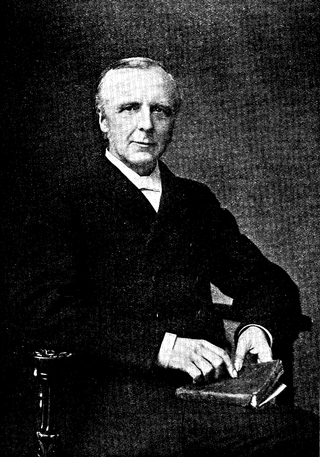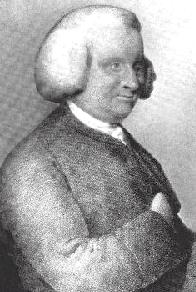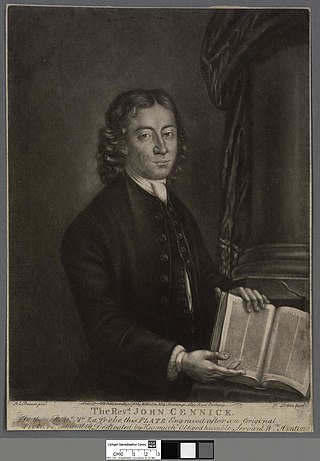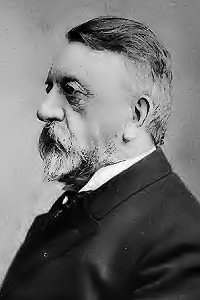
Charles Haddon Spurgeon was an English Particular Baptist preacher. Spurgeon remains highly influential among Christians of various denominations, to some of whom he is known as the "Prince of Preachers." He was a strong figure in the Reformed Baptist tradition, defending the 1689 London Baptist Confession of Faith, and opposing the liberal and pragmatic theological tendencies in the Church of his day.

Regent's Park College is a permanent private hall of the University of Oxford, situated in central Oxford, just off St Giles', England, United Kingdom.
Baptists Together, formally the Baptist Union of Great Britain, is an association of Baptist Christian churches in England and Wales. It is affiliated with the Baptist World Alliance and Churches Together in England. The headquarters is in Didcot.

In Christianity, Jesus is the Son of God as chronicled in the Bibles’ New Testament, and in most Christian denominations He is held to be God the Son, a prosopon (Person) of the Trinity of God.

"Love Divine, All Loves Excelling" is a Christian hymn by Charles Wesley on Christian perfection. Judging by general repute, it is among Wesley's finest. Judging by its distribution, it is also among his most successful.

Horatius Bonar , a contemporary and acquaintance of Robert Murray M'cheyne was a Scottish churchman and poet. He is principally remembered as a prodigious hymnodist. Friends knew him as Horace Bonar. Licensed as a preacher, he did mission work in Leith for a time, and in November 1837 he settled at Kelso as minister of the new North Church founded in connection with Thomas Chalmers's scheme of church extension. He became exceedingly popular as a preacher, and was soon well known throughout Scotland.

Frances Ridley Havergal was an English religious poet and hymnwriter. Take My Life and Let it Be and Thy Life for Me are two of her best known hymns. She also wrote hymn melodies, religious tracts, and works for children. She did not occupy, and did not claim for herself, a prominent place as a poet, but she carved out a niche for herself.

Walter Chalmers Smith, was a hymnist, author, poet and minister of the Free Church of Scotland, chiefly remembered for his hymn "Immortal, Invisible, God Only Wise". In 1893 he served as Moderator of the General Assembly for the Free Church of Scotland. He attained considerable reputation as a poet. Some of these works were written under the names of Orwell or Hermann Kunst.

"Christ the Lord Is Risen Today" is a Christian hymn associated with Easter. Most of the stanzas were written by Charles Wesley, and the hymn appeared under the title "Hymn for Easter Day" in Hymns and Sacred Poems by Charles and John Wesley in 1739. The hymn eventually became well known for the "Alleluia" sung as a melisma after each line, which was added by an unknown author, probably to fit the commonly used hymn tune, "Easter Hymn". It remains a traditional processional hymn on Easter Sunday.

Frederick Brotherton Meyer, a contemporary and friend of D. L. Moody and A. C. Dixon, was a Baptist pastor and evangelist in England involved in ministry and inner city mission work on both sides of the Atlantic. Author of numerous religious books and articles, many of which remain in print today, he was described in an obituary as The Archbishop of the Free Churches.

Robert Lowry was an American preacher who became a popular writer of gospel music in the mid-tolate 19th century. His best-known hymns include "Shall We Gather at the River", "Christ Arose!", "How Can I Keep from Singing?" and "Nothing But The Blood Of Jesus".

Samuel Stennett was a Seventh Day Baptist minister and hymnwriter.

John Cennick was an English Methodist and Moravian evangelist and hymnwriter. He was born in Reading, Berkshire, England to an Anglican family and raised in the Church of England.

Benjamin Keach was an English Reformed Baptist preacher and author whose name was given to Keach's Catechism.
"As with Gladness Men of Old" is an Epiphany hymn, written by William Chatterton Dix on 6 January 1859 (Epiphany) while he was ill in bed. Though considered by many as a Christmas carol, it is found in the Epiphany section of many hymnals and still used by many churches. The music was adapted by William Henry Monk in 1861 from a tune written by Conrad Kocher in 1838. The hymn is based on the visit of the Biblical magi in the Nativity of Jesus.
Anne Muirhead Mathams FEIS was a Scottish educationist, innovator and disability rights activist.
Joseph Stennett was an English Seventh Day Baptist minister and hymnwriter.
Jane Laurie Borthwick was hymn writer, translator of German hymns and a noble supporter of home and foreign missions. She worked closely with her sister, Sarah Laurie Findlater. She published under the pseudonym: H. L. L.. Jane Laurie Borthwick is best known for the Hymns from the Land of Luther; her most famous translation today is Be still, my soul and her most known original text is Come, labor on. Like Catherine Winkworth and Frances Elizabeth Cox, she greatly contributed to English-language hymnody by mediating German hymnody.

"All for Jesus, All for Jesus", also titled as "All for Jesus! All for Jesus!" and originally titled "For the Love of Jesus", is an English Christian hymn. It was written in 1887 by W J Sparrow Simpson intended as the closing chorus of John Stainer's The Crucifixion oratorio. It started to be published as a separate hymn later in 1901.

Henry Lyman Morehouse was a Baptist minister, hymns author and member of the American Baptist Home Mission Society of New York.














